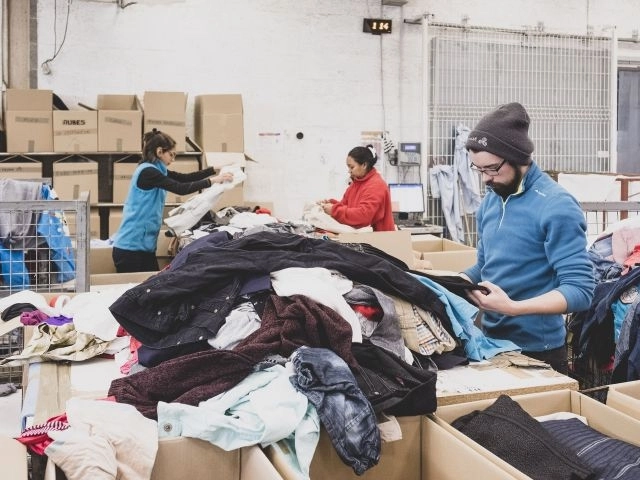
Emmaus is one of the pioneers of second-hand goods in France. Can you go back over the origins of this activity?
Valérie Fayard: The recovery of second-hand products is a means of integrating people who are excluded. It is an activity that serves a social project and is therefore fundamental. Emmaus is a pioneer in this field as the project was born 70 years ago. This makes it all the more difficult to observe the upheavals that are taking place in the second-hand market today. The basic idea of the Emmaus movement is to take in people in great difficulty […].
What does second-hand goods represent for Emmaus in terms of resources and jobs?
Valérie Fayard: The second-hand sector generates around €200 million in turnover every year and provides work for around 7,000 companions and 8,000 employees every year. So we are talking about 15,000 people who can find a place in society thanks to the recovery. This is very important, especially since our objective is to allow these people to regain their autonomy and dignity through work.
Studies are unanimous on the fact that the French are gradually turning to second-hand platforms. Is the impact positive or negative for Emmaus?
Valérie Fayard: In absolute terms, it is obviously a good thing. It is better to buy a second-hand T-shirt than a new one because the environmental impact is incomparable. We are very happy that the French are adopting this reflex, but it also poses certain problems. Some second-hand platforms, and they do not hide it, encourage consumers to buy new products by telling them that if they do not fit, they can easily resell them. This is clearly pushing them to overconsumption, not responsible consumption. All under the guise of circular economy. It has become a frenzy for some, who can’t stop buying and reselling. In this case, this is not necessarily a good thing.
Is there also an impact on donations?
Valérie Fayard: Yes, of course, this is a real issue for Emmaus. Our model is based on the donation of good quality items – clothes or objects – because that is precisely what brings in money. If people turn to second-hand platforms as a priority, they will only give away what has not been sold, or even poor quality items. At Emmaus, this means that the proportion of recycling will increase to the detriment of the proportion of reuse and our economic balance will inevitably be upset.
To understand this, you need to know that 20 years ago, 60 out of every 100 products were reused, with the rest going to recycling. Today, only forty-five products are reused… This is a considerable drop, a real upheaval. We are now receiving more donations, but of poor quality. This is terrible for our model, but also societally, because it means that everything is commoditized.
➔ Read the full interview (in French) on Fashion Network
